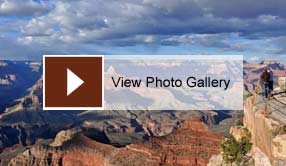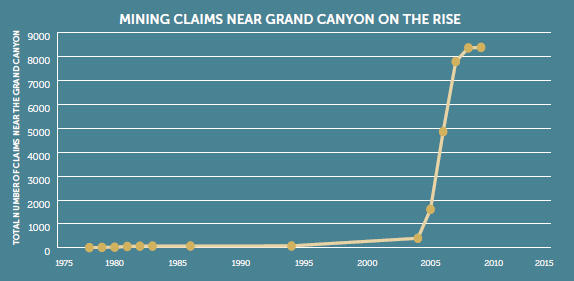Pew Applauds Obama Administration Plan to Limit Mining Near Grand Canyon
In an important decision, U.S. Interior Secretary Ken Salazar proposed to withdraw nearly 1 million acres of public land surrounding Grand Canyon National Park from new mining claims.
 Jane Danowitz, U.S. public lands director for the Pew Environment Group, issued the following statement today in reaction to U.S. Interior Secretary Ken Salazar's proposal to withdraw nearly 1 million acres of public land surrounding Grand Canyon National Park from new mining claims.
Jane Danowitz, U.S. public lands director for the Pew Environment Group, issued the following statement today in reaction to U.S. Interior Secretary Ken Salazar's proposal to withdraw nearly 1 million acres of public land surrounding Grand Canyon National Park from new mining claims.
“We commend the Obama administration for making a clear commitment to give the Grand Canyon long-term protection from new uranium mining at its doorstep. For decades to come, Americans will benefit from today's far-sighted decision to safeguard this natural icon.
“Even with today's action, uranium mining is expected to expand around the Grand Canyon, underscoring the need for lawmakers to move swiftly to modernize the 1872 mining law. We encourage the administration to work with Congress now to reform this antiquated law so that the Grand Canyon and other national treasures will be protected.”
Background
In response to a rash of new mining claims near Grand Canyon National Park, U.S. Interior Secretary Ken Salazar issued a temporary halt in 2009 to new claim-staking on nearly 1 million acres of public land surrounding the park. Salazar's announcement today called for a 20-year moratorium under the Federal Land Policy and Management Act (FLPMA) on all 1 million acres of U.S. Forest Service and Bureau of Land Management land, a proposal to be finalized December 20, 2011. The executive branch has applied FLPMA to protect other places from new claim-staking, including Yellowstone National Park and Oregon's Coos By. Such action has been necessary because the mining of gold, uranium and other hardrock minerals is still governed by a law signed by President Ulysses S. Grant in 1872. The outdated law gives mining companies “free and open access” to the majority of public land in the West and the Congressional Budget Office has shown it allows at least $1 billion in valuable metals to be taken from public land without taxpayer compensation. The Obama administration and members of Congress from both sides of the aisle have called for modernizing the law. The Environmental Protection Agency has identified the hardrock mining industry as the nation's top polluter due to the more than $2 billion in federal spending on mine cleanup over the past decade.

The Pew Environment Group is the conservation arm of The Pew Charitable Trusts, a nongovernmental organization that works globally to establish pragmatic, science-based policies that protect our oceans, preserve our wildlands and promote clean energy.











